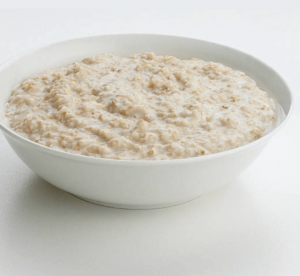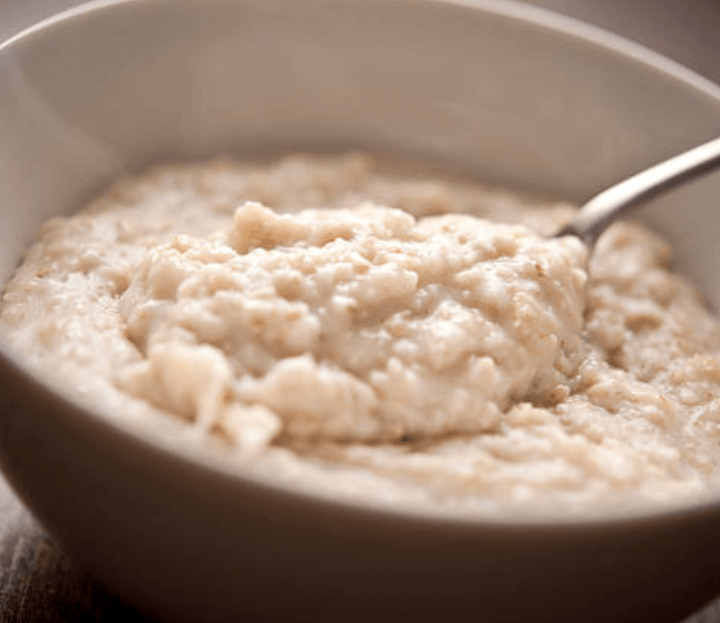Cream of wheat is a popular breakfast cereal that many parents consider as a first food option for their babies. But is cream of wheat safe for babies? In this article, we will examine the nutritional value of cream of wheat and whether it is a safe option for your little one.

Can Babies Eat Cream of Wheat?
By reading this article, you will learn:
- The nutritional value of Cream of Wheat and when babies can start eating solid foods.
- The safety of feeding Cream of Wheat to babies and how to prepare it for them.
- Other healthy alternatives to Cream of Wheat and tips for feeding solid foods to babies.
What is Cream of Wheat?
Cream of wheat is a warm breakfast cereal made from semolina flour. It can be cooked with milk or water and flavored with a variety of ingredients such as sugar, honey, or fruit. Cream of wheat is a good source of iron, calcium, and other essential nutrients, making it an ideal choice for a healthy breakfast or snack.
When Can Babies Start Eating Solid Foods?
According to the American Academy of Pediatrics, babies should be exclusively breastfed or formula-fed for the first six months of their life. After six months, babies can start eating solid foods, but it is important to introduce them gradually and carefully.
Can Babies Eat Cream of Wheat?
Cream of wheat can be a safe and healthy option for babies, but parents must be careful when introducing it to their little ones. One advantage of feeding cream of wheat to babies is its iron and calcium content. However, there are potential risks or concerns associated with feeding cream of wheat to babies, such as gluten sensitivity or allergic reactions. If your baby has a family history of allergies or has shown signs of allergic reactions in the past, it’s best to consult your pediatrician before introducing cream of wheat into their diet.

When feeding cream of wheat to babies, it is essential to ensure that the cereal is appropriately prepared and has a suitable texture. The cereal should be smooth and easy to swallow, and you should avoid adding any sugar or salt.
Read more: >> How to put a baby to sleep quickly in 40 seconds
How to make Cream of Wheat for baby
Preparing cream of wheat for babies is relatively easy and straightforward. Mix one tablespoon of cream of wheat with four tablespoons of water or milk. Cook the mixture on low heat for 2-3 minutes, stirring continuously. Add more water or milk if necessary to get the desired consistency. Let it cool to room temperature before serving. You can add mashed fruits or purees to the cream of wheat to add some flavor and nutrition. Some excellent options include mashed bananas or applesauce.
Can Babies Eat Cream of Wheat and Milk?
I have been asked many times if babies can eat cream of wheat and milk. The answer is yes, babies can eat cream of wheat and milk. It can be a good source of nutrition for them, especially when they are transitioning from breast milk or formula to solid foods.
When preparing cream of wheat for babies, make sure that the consistency is appropriate for their age and developmental stage. For younger babies, it is best to make the cream of wheat thinner and smoother by mixing it with breast milk or formula. As they get older and more comfortable with solid foods, you can gradually make the cream of wheat thicker and chunkier.
Read more: >> Can babies see Angels
How to Make Cream of Wheat with Breast Milk
As babies transition to solid foods, Cream of Wheat can be a great option to supplement their nutrition. Here’s how I make Cream of Wheat with breast milk for my little one:
- First, I gather the ingredients: Cream of Wheat, breast milk, and water.
- I mix equal parts Cream of Wheat and water in a small saucepan. For example, 1/4 cup of Cream of Wheat and 1/4 cup of water.
- I stir the mixture over medium heat until it starts to boil.
- Once it starts to boil, I reduce the heat to low and simmer for 2-3 minutes, stirring occasionally.
- Next, I add breast milk to the mixture. I usually add 1/4 cup of breast milk, but you can adjust the amount to your baby’s liking.
- I continue to stir the mixture until it thickens to the desired consistency. This usually takes about 1-2 minutes.
- I remove the saucepan from the heat and let the Cream of Wheat cool before serving it to my baby.
Cream of Wheat vs Oatmeal for Babies
When it comes to introducing solid foods to babies, parents often wonder which cereals are best for their little ones. Two popular options are Cream of Wheat and oatmeal. Here’s a comparison of the two:
Nutritional Value
Both Cream of Wheat and oatmeal are good sources of nutrients for babies. They are fortified with vitamins and minerals, such as iron, which is essential for healthy growth and development. Oatmeal is considered to be a better source of fiber compared to Cream of Wheat.
Texture
Cream of Wheat has a smoother texture compared to oatmeal, which can be more appealing to some babies. Oatmeal has a coarser texture, which can help babies develop their chewing skills.
Taste
Both Cream of Wheat and oatmeal have a mild taste, making them a good option for babies who are just starting to eat solid foods. Oatmeal has a slightly nuttier flavor compared to Cream of Wheat.
Allergies
Parents should be aware that both Cream of Wheat and Oatmeal contain gluten. If your baby has a gluten intolerance or celiac disease, it’s best to avoid these cereals and opt for gluten-free alternatives instead.
Does Cream of Wheat cause constipation in babies?
I have researched whether Cream of Wheat causes constipation in babies. According to an article on MomInformed, Cream of Wheat is a good source of iron and other essential vitamins and minerals that babies need for their growth and development. Note that Cream of Wheat is a processed food and may contain added sugar and preservatives that are not suitable for babies.
Constipation is a common problem among babies, and parents often wonder whether Cream of Wheat causes constipation in babies. According to an article on Medical News Today, constipation in babies can be caused by various factors such as dehydration, changes in diet, medications, and various health issues. Therefore, it is unlikely that Cream of Wheat alone would cause constipation in babies.
Some babies may be allergic to wheat or have a gluten intolerance, which can cause digestive problems such as constipation. Therefore, parents should be aware of their baby’s dietary needs and any food allergies or intolerances before introducing Cream of Wheat or any other new food to their baby’s diet.
Other Healthy Alternatives to Cream of Wheat
While cream of wheat is a healthy and nutritious option for babies, there are other alternatives that parents can try as well. One popular option is oatmeal, which is high in fiber and protein. Rice cereal is also a good option, as it is easy to digest and low in allergens. Another alternative is quinoa, which is a complete protein and easy to digest.
[wptb id=345]
Tips for Feeding Solid Foods to Babies
Feeding solid foods to babies can be a challenging experience, but there are some tips and advice that can make the process easier. Introduce one new food at a time and wait for a few days before trying another one. Watch for signs of allergic reactions such as rashes, hives, or vomiting. Offer a variety of foods to babies to promote a balanced diet. Encourage self-feeding as soon as possible, as this can help develop fine motor skills.
Frequently Asked Questions
[sp_easyaccordion id=”394″]
Conclusion
Cream of wheat can be a safe and healthy option for babies, but it is essential to introduce it gradually and carefully. Can babies eat cream of wheat?. It is an excellent source of iron and calcium, but there are potential risks or concerns associated with feeding it to babies. As with any solid food, it is important to consult with your pediatrician before introducing cream of wheat into your baby’s diet. If cream of wheat is not an option for your baby, there are other healthy alternatives such as oatmeal, rice cereal, or quinoa. Remember to introduce solid foods gradually and carefully, and watch for signs of allergic reactions. By following these tips and guidelines, you can ensure that your little one is getting the nutrition they need for healthy growth and development.
